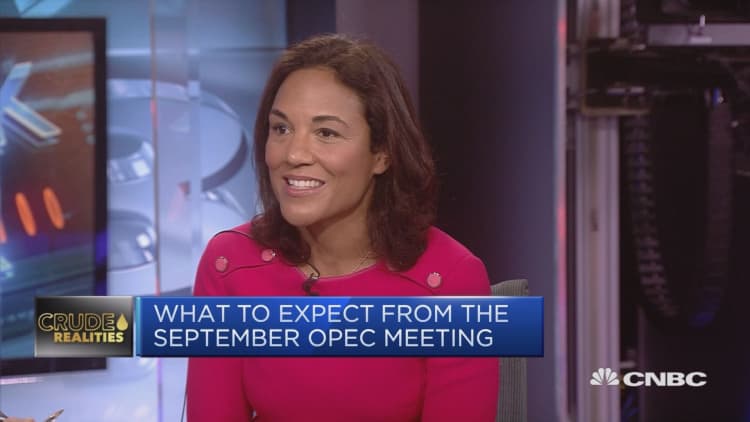
Oil prices are being weighed down by concerns we have reached the limits of demand which is crippling valuations more than other factors such as the threat from electric cars and national policies geared at banning vehicles running on petrol and diesel in the future, says RBC's chief commodities strategist.
"We went from a situation pre-U.S. shale boom where we were talking about peak production, now we're talking about peak demand," Helima Croft told CNBC on Tuesday.
"For U.S. shale producers…when it's $45 no-one is really happy but you get to $50 and they're willing to hedge their production so there's a question of 'is this a cap on near-term prices'?" she added, referring to a WTI price of $50 as being the "iceberg of U.S. production".
This is problematic for the countries which need prices to be in the sixty-plus U.S. dollar range, says Croft, who says that the key goal of the agreement between OPEC and non-OPEC members to limit output which is set to expire in March 2018 was to push prices above $60.
"Certain countries do need $60s for their policies," she explained, pointing to next year when the participants need to decide whether or not to renew the agreement for a third term.
Walking through the participants and their level of commitment, Croft singled out Kazakhstan as being a "lost cause".
"I don't know why they are actually included in the agreement. They sign up and keep pumping," she noted, adding that the real question concerned Russia's willingness to keep going.
"Vladimir Putin seems to be in favour of extending so far it looks like – so I think the Russians will be on board for an extension but it's going to be a little nervewracking," Croft predicted before saying that the real variable in the situation is Saudi Arabia.
"Is Saudi going to do more to make up for the states that are not honouring their commitment?" asked Croft, noting that the Kingdom is clearly one of the more incentivized states to make this agreement work.
The International Monetary Fund estimates that the break-even price of a barrel of oil is $84 for Saudi Arabia and according to OPEC, oil and gas accounts for around 85 percent of the kingdom's export earnings. As of 10:30 a.m. on Tuesday, Brent was trading at $53.88 and WTI was trading at $48.10.
Saudi Arabia has shown itself to have been compliant with the agreement but the inevitable concern for oil bulls is at what point its patience expires.
"The question is what happens after 2018 – are they going to be willing to keep balancing this market?" posited Croft.


